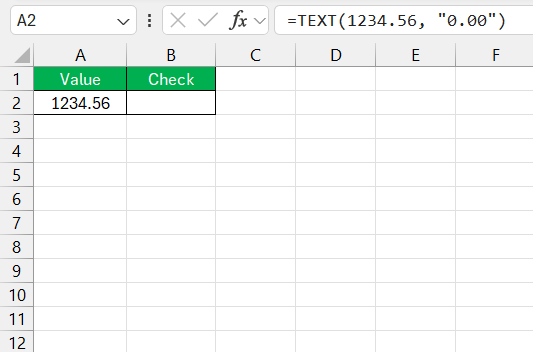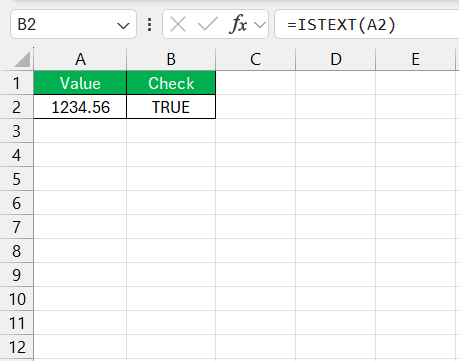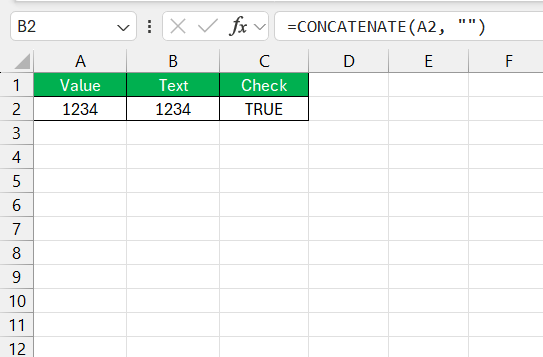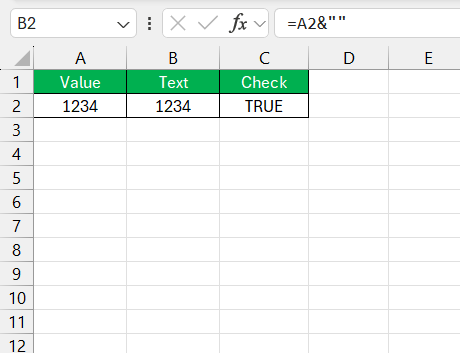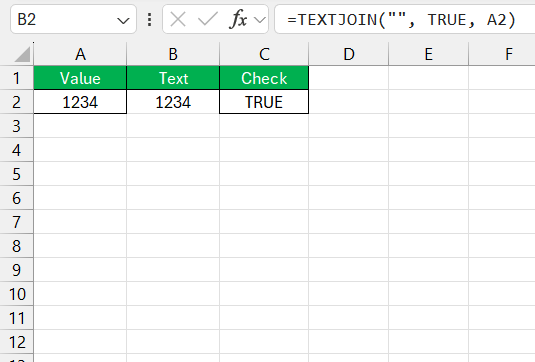Converting numbers to text in Excel can be essential for various reasons, such as maintaining formatting consistency, manipulating data, or ensuring compatibility with other applications. I’ve found that Excel offers several methods to achieve this, each with its unique advantages. Let me share with you the techniques I use to convert numbers to text in Excel, including functions, formatting options, and more.
Key Takeaways:
- Maintain Data Integrity: Converting numbers to text in Excel prevents issues like disappearing leading zeros and unwanted format changes, keeping data like ZIP codes and product codes accurate.
- Versatile Functions: Excel’s functions like
TEXT,CONCATENATE, andTEXTJOINmake it easy to convert numbers to text for various data manipulations. - Simple Methods: Use the
TEXTfunction or combine numbers with an empty string usingCONCATENATEor&for quick conversions. - Preserve Formatting: Converting numbers to text ensures leading zeros in product codes and other data are preserved, avoiding confusion.
- Enhanced Compatibility: Converting numbers to text improves data compatibility across software and enhances report clarity and precision.
Unveiling Excel’s Text Conversion Power
Why Convert Numbers to Text
In Excel, converting numbers to text is a routine yet powerful trick that addresses various data management needs. Maybe you’ve grappled with disappearing leading zeros in a list of phone numbers or despaired as Excel zealously changes product codes into something resembling a math problem. These pain points have led me to convert numbers to text.
When I do this, Excel stops tinkering with my data, keeping ZIP codes intact, fractions readable, and ensuring that identification numbers appear exactly as they should. This conversion is essential for accurate data representation, especially when preparing reports or importing and exporting data between different software.
The Transformation Ability of Excel Functions
Excel functions are nothing short of magicians when it comes to transforming data. They can take seemingly ordinary numbers and revamp them to serve a myriad of purposes. With just a few clicks, these functions allow me to achieve tasks ranging from simple conversions, like changing numbers to text, to complex data manipulations involving searches, summing based on conditions, and even sophisticated array operations.
They truly expand the realm of possibilities, making Excel an indispensable tool not just for data analysts, but for anyone who needs to manipulate and present data effectively.
Step-by-Step Guide for Quick Conversion
Method 1 – Using the TEXT Function
The TEXT function is a versatile tool for converting numbers to text while applying specific formatting. The syntax is:
TEXT(value, format_text)
- value: The number you want to convert.
- format_text: The format you want to apply.
Example:
If we want to convert the number 1234.56 to text with two decimal places:
=TEXT(1234.56, “0.00”)
The ISTEXT function in Excel is used to check whether a given value is text. It returns TRUE if the value is text and FALSE if it is not. text or not.
Method 2 – Using the CONCATENATE Function
The CONCATENATE function (or & operator) helps me convert numbers to text by combining them with an empty string.
Example:
To convert the number 1234 to text, I can use:
=CONCATENATE(A2, “”)
Or with the & operator:
=A2 & “”
Method 3 – Using the TEXTJOIN
For Excel 2016 and later versions, I’ve found TEXTJOIN function offers more flexible options for joining and converting numbers to text.
Example:
=TEXTJOIN(“”, TRUE, A2)
Real-World Scenarios and Solutions
Preserving Leading Zeroes in Product Codes
When managing product codes, preserving leading zeroes is less about aesthetics and more about maintaining the unique identity of each item. Leading zeroes might seem insignificant, but in the world of inventory management, they play a crucial role in differentiating products. Lose them, and you’re in a whirlwind of confusion.
Thankfully, Excel comes to the rescue, empowering you with several methods to keep those zeroes intact. You could format the cells as ‘Text’ before entering data or apply the aforementioned TEXT function, ensuring every code retains its rightful form—zeros included. This meticulous attention to detail is what makes or breaks the seamless tracking and identification of products.
Converting Data for Compatibility and Reporting
Ensuring compatibility and precision in reports is a dance with data, where every step must be perfectly executed. When you convert data in Excel, particularly numbers to text, you’re essentially choreographing this dance to the tune of various systems’ requirements. It’s a vital step for interoperability, ensuring that when data waltzes from Excel to other programs, it retains its character—literally.
Additionally, reports flourish with clarity when figures are formatted correctly, making them more accessible and comprehensible to stakeholders. So whether you’re aiming to align cells in a report or make your data play nice with other applications, conversion is the key to harmonious data relations.
FAQ: Your Questions, Answered
How do I convert numbers to text in Excel automatically?
To convert numbers to text automatically in Excel, you can pre-format the target cells as ‘Text’ before typing or pasting in the numbers. Alternatively, use the TEXT function by typing =TEXT(value, format_text) into a cell, where value is the number you want to convert and format_text specifies the number format.
What is the formula to convert a number to text?
The formula to convert a number to text in Excel is the TEXT function: =TEXT(B5,"0"). Replace “B5” with the cell containing the number you wish to convert. The quotes can contain a variety of formatting options such as “0” for a simple conversion while maintaining numerical value.
Can Numbers Be Converted to Words in Excel?
Excel doesn’t natively convert numbers to words, but you can add this functionality with a VBA macro function. By creating a custom SpellNumber function in Visual Basic for Applications, Excel can translate numbers into English words, perfect for financial reports or checks.
How Do I Prevent Excel from Changing Numbers to Scientific Notation?
To prevent Excel from changing large numbers to scientific notation, you can format the cells as ‘Text’ before inputting your data or use the ‘Number’ format with zero decimal places, ensuring Excel treats and displays the content exactly as entered.
Why convert text to numbers in Excel?
Converting text to numbers in Excel is critical when you want to crunch those digits. Say goodbye to error messages in your sum formulas and ditch the manual counting. Excel needs those numbers in number format to perform calculations, sort numerically, or pivot that data into insightful charts. It’s about making sure your spreadsheet is not just data-rich, but also ready to bow to your every analytical command.
John Michaloudis is a former accountant and finance analyst at General Electric, a Microsoft MVP since 2020, an Amazon #1 bestselling author of 4 Microsoft Excel books and teacher of Microsoft Excel & Office over at his flagship MyExcelOnline Academy Online Course.

